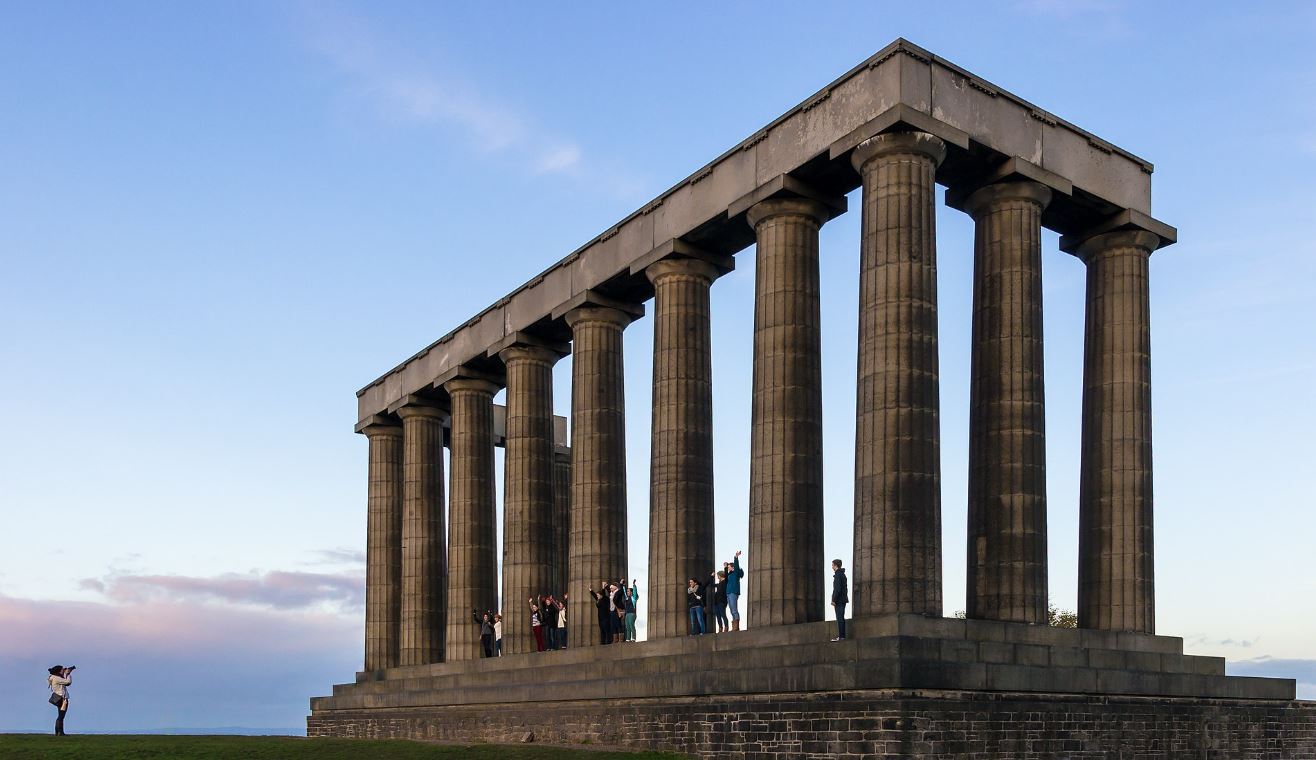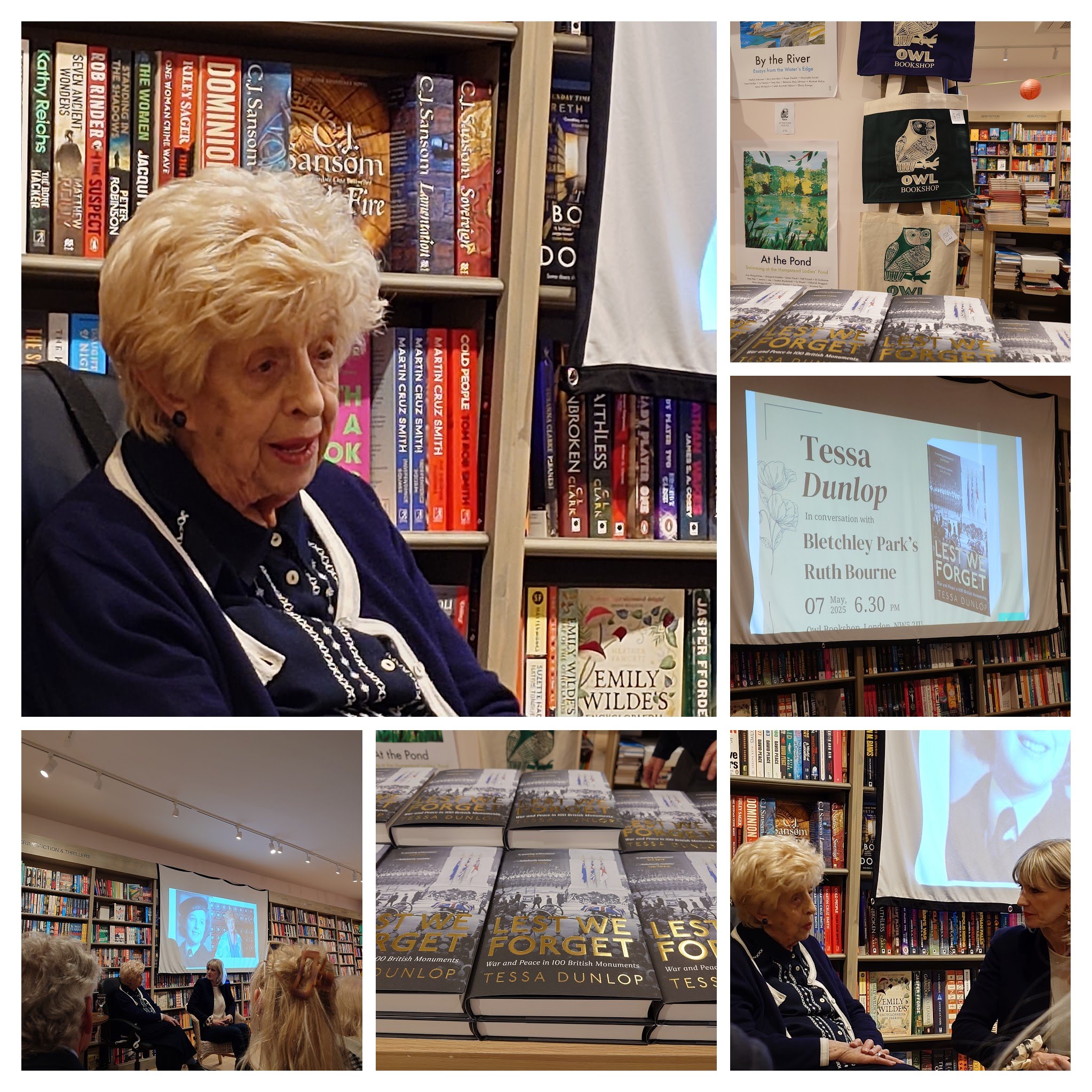Tessa Dunlop's latest book entitled 'Lest We Forget' was launched to commemorate this 80th anniversary of VE Day.
Tessa travelled the length and breadth of the UK, visiting over 100 monuments and then writing about their unique stories. During her book launch in Kentish Town, Tessa admits she could have highlighted many more.
The book, published by Harper North, is a must read. The stories of the monuments are told by many voices, stories that resonate with readers not just because Britain has such a rich history but because right now we are constantly aware of the destruction of lives in the wars being fought across the globe.
On pages128-131, The National Monument of Scotland, Carlton Hill, Edinburgh, 1822-29, explained.

The construction of this monument started seven years after the end of the Battle of Waterloo (18 June 1815) to remember Scotland's fallen and was designed during 1823–6 by Charles Robert Cockerell and William Henry Playfair.
"Edinburgh, Britain's self-designated Athens of the North looked to Carlton Hill, as the new Acropolis, an ideal central summit for taking in Edinburgh's enlightened vistas of towns old and new. In 1822, an army of horses began hauling vast blocks of Craigleigh stone up its central grassy slope. Only the best for Scotland's capital and its glory-in-arms" writes Tessa.
"On Carlton Hill, the National Monument of Scotland remains unmissable. Today, it is almost the exclusive preserve of Edinburgh's youth, who huddle and plot on its mega-base, armed with Insta profiles, cans of Irn-Bru and stacked trainers. I join them; it is a long way up without a winch or step. Hello Edinburgh. Hello unfinished ambition. Hello humiliation - national and personal -(I had to climb back down). This brutish rump, with twelve Doric columns, is a monument to national hubris. Scotland was indeed thinking big. Or rather, the 7th Earl of Elgin was." Continues Tessa.
And indeed Lord Elgin is best known for paying men to use metal saws, chisels, hammers, pulleys to remove half of the sculptures from the Parthenon alongside other parts of the Acropolis - all destined for Scotland and his ancestral home. A fire sale saw the Parthenon (aka Elgin) Marbles bought by the then British government (1816) and deposited in the British Museum.
"The Greek War of Independence saw Greece reborn from under Ottoman control, at the same time as Elgin attempted to rebuild his sullied reputation with Edinburgh's facsimile Parthenon."
"The project, always divisive, was never finished; its Neoclassical style derided as too English and its raison d'être long forgotten. So much for an inscription to the fallen of Waterloo."

Book launch, Kentish Town's Owl Bookshop with Tessa in conversation with 98 year old Ruth Bourne, a Bombe machine operative at Bletchley Park during WW ll.